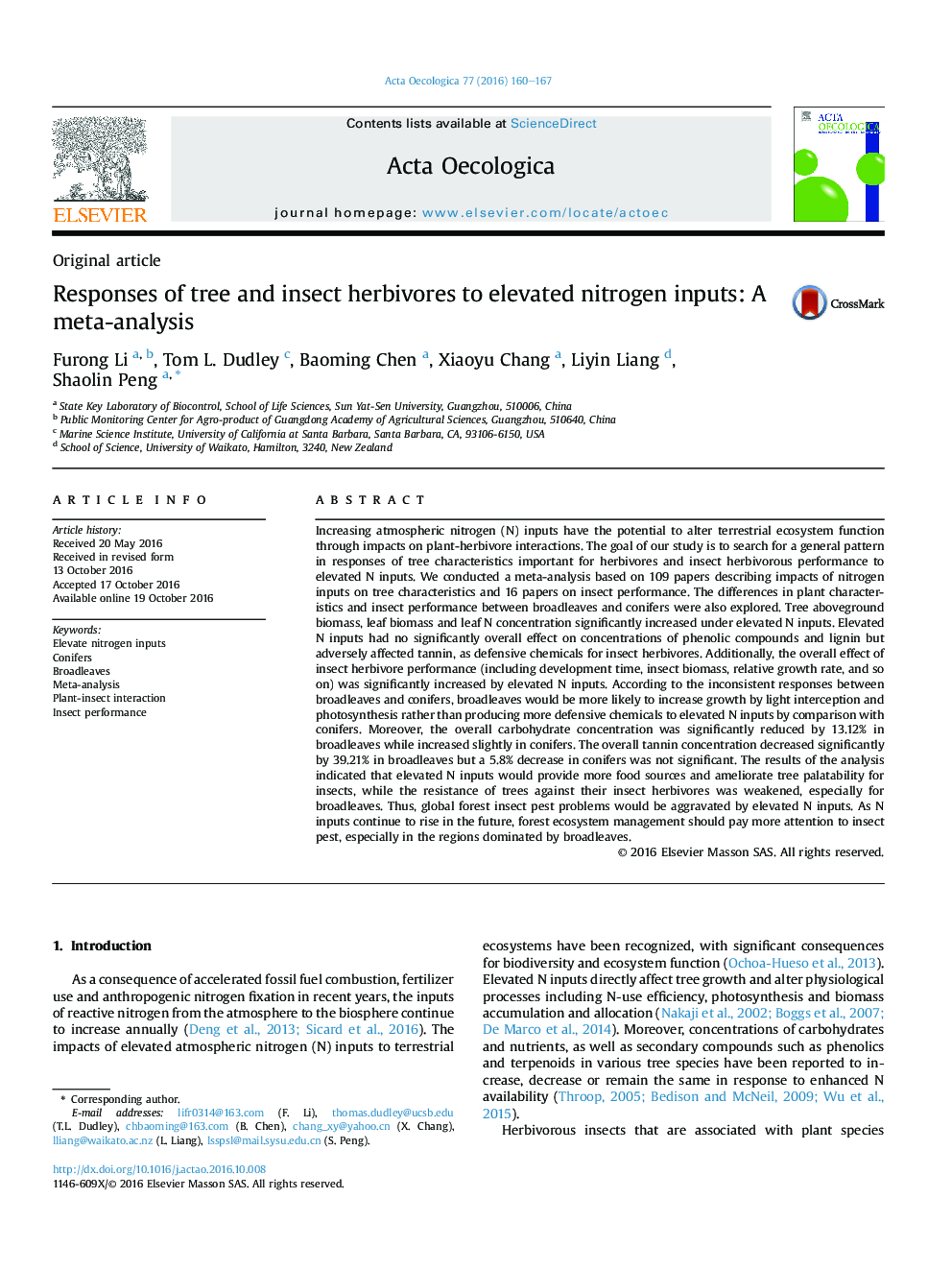| Article ID | Journal | Published Year | Pages | File Type |
|---|---|---|---|---|
| 8846552 | Acta Oecologica | 2016 | 8 Pages |
Abstract
Increasing atmospheric nitrogen (N) inputs have the potential to alter terrestrial ecosystem function through impacts on plant-herbivore interactions. The goal of our study is to search for a general pattern in responses of tree characteristics important for herbivores and insect herbivorous performance to elevated N inputs. We conducted a meta-analysis based on 109 papers describing impacts of nitrogen inputs on tree characteristics and 16 papers on insect performance. The differences in plant characteristics and insect performance between broadleaves and conifers were also explored. Tree aboveground biomass, leaf biomass and leaf N concentration significantly increased under elevated N inputs. Elevated N inputs had no significantly overall effect on concentrations of phenolic compounds and lignin but adversely affected tannin, as defensive chemicals for insect herbivores. Additionally, the overall effect of insect herbivore performance (including development time, insect biomass, relative growth rate, and so on) was significantly increased by elevated N inputs. According to the inconsistent responses between broadleaves and conifers, broadleaves would be more likely to increase growth by light interception and photosynthesis rather than producing more defensive chemicals to elevated N inputs by comparison with conifers. Moreover, the overall carbohydrate concentration was significantly reduced by 13.12% in broadleaves while increased slightly in conifers. The overall tannin concentration decreased significantly by 39.21% in broadleaves but a 5.8% decrease in conifers was not significant. The results of the analysis indicated that elevated N inputs would provide more food sources and ameliorate tree palatability for insects, while the resistance of trees against their insect herbivores was weakened, especially for broadleaves. Thus, global forest insect pest problems would be aggravated by elevated N inputs. As N inputs continue to rise in the future, forest ecosystem management should pay more attention to insect pest, especially in the regions dominated by broadleaves.
Related Topics
Life Sciences
Agricultural and Biological Sciences
Ecology, Evolution, Behavior and Systematics
Authors
Furong Li, Tom L. Dudley, Baoming Chen, Xiaoyu Chang, Liyin Liang, Shaolin Peng,
